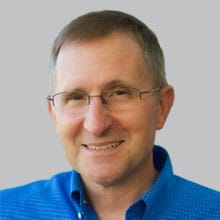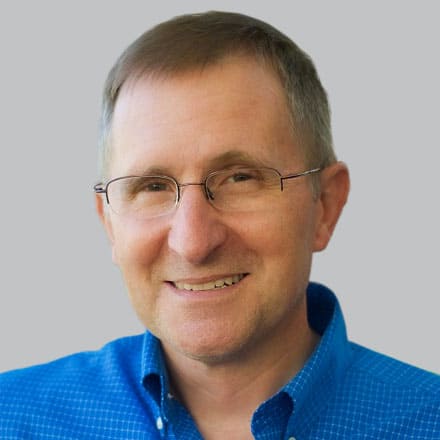Inside Angle
From 3M Health Information Systems
Dr. Paul Farmer and the pursuit of the impossible
In February 2022, the world lost one of its greatest health care innovators. Dr. Paul Farmer, co-founder of Partners in Health (PIH), died at 62 years old, after a lifetime battling health care crises around the globe. He has long been a great hero of mine. His career focused on the pursuit of what seems impossible: justice and equity in health care. Intractable problems like the fact 50 percent of people in the world lack access to essential health care, or that each day 15,000 children die before reaching their fifth birthday, or that 94 percent of maternal deaths occur in low income countries. (See details about these “impossible” problems on the Partners in Health web site.)
Partners in Health, founded in 1987, started its work on a small scale in underprivileged and remote regions of Haiti and over time partnered with the Haitian Ministry of Health to sustain their efforts. Making the impossible happen in Haiti (dramatic reduction in deaths from tuberculosis, AIDS and malaria) resulted in proven medical, financial and logistical models for health care intervention which PIH has replicated in Russia, Peru, Rwanda, South Africa, Mexico, the Navajo Nation, Liberia, Malawi and Sierra Leone. In May 2020, PIH launched its U.S. arm in response to the COVID-19 pandemic.
Dr. Farmer and his PIH teams did more than chip away at impossible problems—they made impossible things happen in spite of intractable political, financial and cultural obstacles.
In his book “Mountains Beyond Mountains”, Pulitzer Prize winning author Tracy Kidder explores Dr. Farmer’s quest to “cure the world.” (You can find a condensed version of the story in Kidder’s article, “The Good Doctor” in The New Yorker.)
One of the most compelling stories concerns Dr. Farmer’s work to combat multi-drug-resistant tuberculosis (MDR TB). In the early 1990s, 80 percent of inmates in Russian prisons had active TB and many had co-infection with AIDS, which magnified the epidemic. The NIH National Library of Medicine confirmed, “about 100,000 people confined within the Russian prison system [had] been diagnosed with active tuberculosis. About 40,000 of them [had] multi-drug resistant tuberculosis.”
This was an epidemic raging out of control. Kidder notes in “Mountains Beyond Mountains” that a prison inmate, even one imprisoned temporarily for petty theft, could contract and die from MDR TB before he or she was formally tried and sentenced.
Enter Dr. Farmer and PIH. Since TB patients were already resistant to current (and extravagantly expensive) antibiotics, PIH leaders (especially co-founder Jim Yong Kim) developed treatment plans using old, second-line antibiotics. The MDR TB death rate plummeted. Plus, PIH leaders were able to cut the cost of treatment exponentially, since many second-line antibiotics had expired patents. For example, Kidder noted, “The drugs to treat a four-drug-resistant case of MDR … cost PIH about $1,500, instead of $15,000.”
PIH replicated what they learned in Russian prisons to counter MDR TB outbreaks in Peru, Mexico and other countries. Once again what seemed impossible turned out not to be. In a December 2019 interview on Bloomberg Big Decisions, Dr. Farmer said, “Every time we turned our attention to an intractable problem, it’s proven to be quite tractable.”
In the Bloomberg interview, Dr. Farmer also notes the vital importance of combining public/government resources and private resources (i.e., the Gates Foundation). He cites the example of using quickly activated private resources to build a desperately needed hospital in Rwanda and then working with leaders in the Rwandan government to fund more than 70 percent of hospital salaries. Private resources can jumpstart an intervention to address an acute health care crisis. Then local public resources can sustain the intervention.
Dr. Farmer also observed that though America leads the world in health care spending and innovation to treat illness, it often falls short on prevention. “We don’t attend enough to preventing adverse outcomes among those that are already sick,” most often the poor and disadvantaged populations.
Throughout his career, Dr. Farmer has returned to the remote villages in Haiti to do home visits, often walking a whole day to visit one patient. What appears to be an impractical, unsustainable approach represents what Dr. Farmer would see as a paradigm shift in the way we think about health care. Why shouldn’t we increase one-on-one, doctor to patient encounters? And does it always have to happen in a hospital or even a clinic? Why not in patients’ homes?
What if doing millions of home visits isn’t impossible? Dr. Farmer proposed we should have millions of community health care workers who can visit patients in their homes. Perhaps it is sustainable and even the best action we can take, especially among the most vulnerable populations.
In the remote villages of Haiti that’s what turned the TB and malaria epidemics around. Are patients taking their TB medication? Do they have other complicating illnesses you have to observe directly to confirm? Do they have enough to eat? Do they have a safe place to sleep? So often it comes down to the social determinants of health (SDoH) and health care inequality.
Not many of us can impact the world on the scale of Dr. Farmer and PIH. But we can resist the failure of imagination that can prevent us from reaching for the impossible. Individual clinicians can prioritize direct patient contact even when they have “impossible” caseloads. Health information software engineers can find new ways to ease the burden on physicians or make health data more interoperable. Medical scientists can develop new treatments, vaccines and therapeutic medications that were thought impossible only a few years ago.
At 3M, we have a corporate anthem for 2022 that can be summed up as follows: “How do you solve an impossible problem? You start by believing it isn’t.” Dr. Farmer proved this time after time in an unprecedented career that changed the way the world delivers health care.
Steve Cantwell is a senior marketing communications specialist at 3M Health Information Systems.


